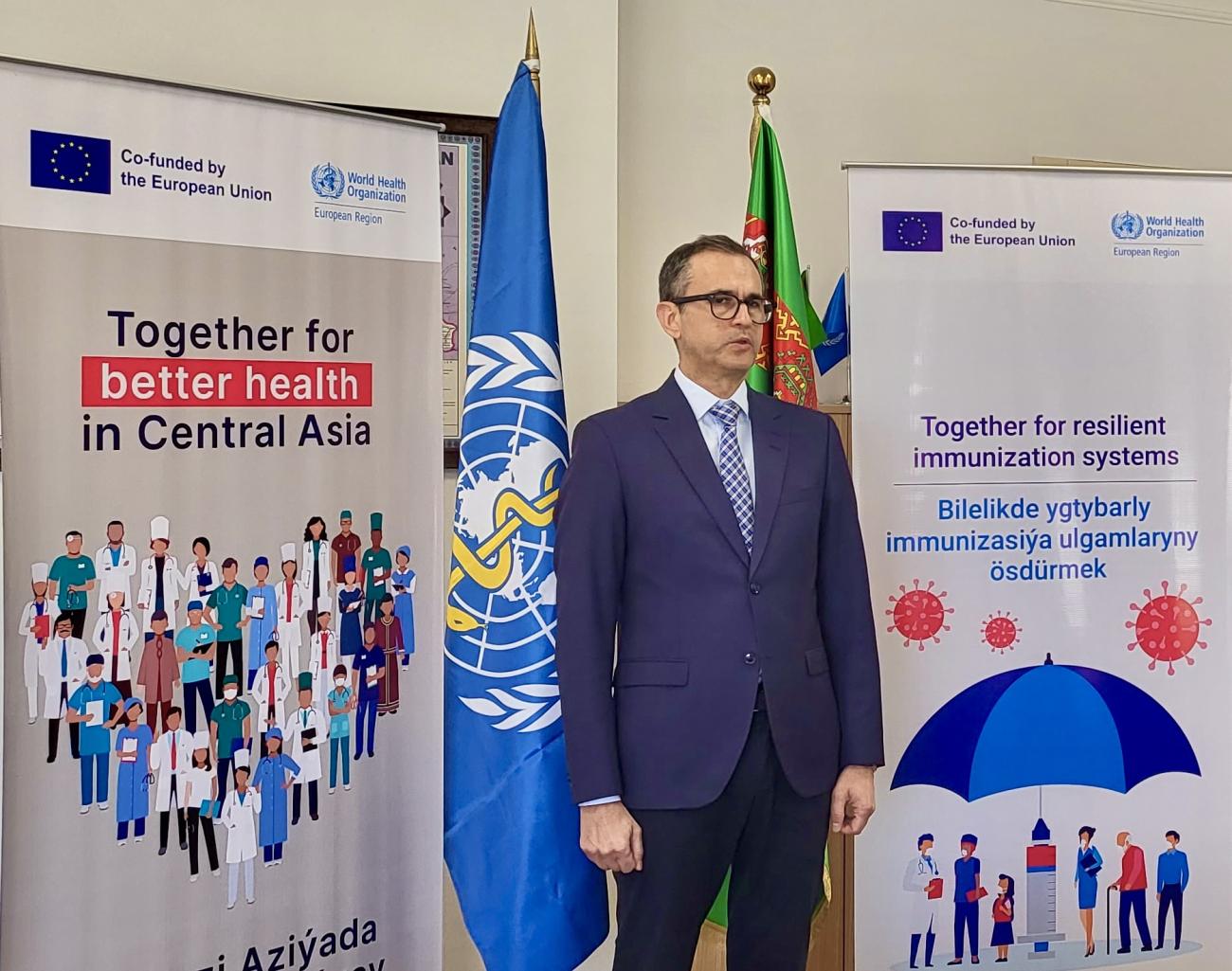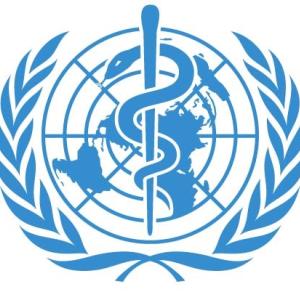Today marks the start of European Immunization Week (EIW).
This year EIW is marked under the theme “Together for resilient immunization systems” within the “Central Asia COVID-19 Crisis Response – Phase 2, which is implemented in close cooperation with the European Union. The event is a pillar in what the World Health Organization is calling the year of ‘The Big Catch Up’ in which we must address a concerning decline in childhood vaccination rates across the world. As such, WHO Country Office in Turkmenistan, together with the EU Delegation, UN Agencies and the Ministry of Health and Medical Industry of Turkmenistan launches the European Immunization Week in the country. This year is special as WHO celebrates its 75th anniversary under the theme “Health for all”.
Immunization is one of the most effective public health interventions. For the last years we have witnessed decline of global immunization coverage. Much of this decline can be attributed to impacts caused by the COVID-19 pandemic, but as we continue to fight the consequences of this devastating disease, it is important that we do not lose ground in our efforts to control and eliminate other vaccine-preventable diseases. Our public health systems must therefore remain vigilant to track and trace any cases of vaccine-preventable diseases, and we must remind the people that every vaccine and vaccine dose counts to save lives, protect ourselves, and protect those we love. Our aim is to reach the level of vaccination coverage to the level prior to pandemic period and this is absolutely possible. Since 2022 European region became a region free from polio thanks to immunization.
“Turkmenistan has achieved significant progress in vaccine coverage - more than 95 % as recommended by WHO, which is a milestone towards increasing immunization rates. It is also important to note incorporation of HPV vaccines into the vaccination schedule in 2016 and both boys and girls have been offered the HPV vaccine to protect against cervical and other cancers. In 2019, there have been introduced pneumococcal and rotavirus vaccines, which is another huge progress,” said Mr. Yegor Zaitsev, WHO Representative in Turkmenistan during the media briefing organized with the financial support of the EU.
Working together with the Government of Turkmenistan, the UN agencies and EU we have seen great progress in Turkmenistan in improving and safeguarding public health, in large part due to the effectiveness of vaccines.
Turkmenistan is one of five Central Asian countries to benefit from a 4-year project, jointly funded by the European Union and WHO, to strengthen immunization and the digitalization of health systems towards advancing universal health coverage. The project funds are used to develop and implement COVID-19 and routine immunization plans, train health care workers and professionals involved in vaccination and strengthen immunization information systems.
Given all of these achievements, we are confident that through continued partnership we will overcome the obstacles brought by the COVID-19 pandemic, and the progress we have made in each country and the region in protecting children and adults from life-threatening diseases will continue so that no one will be left behind.




